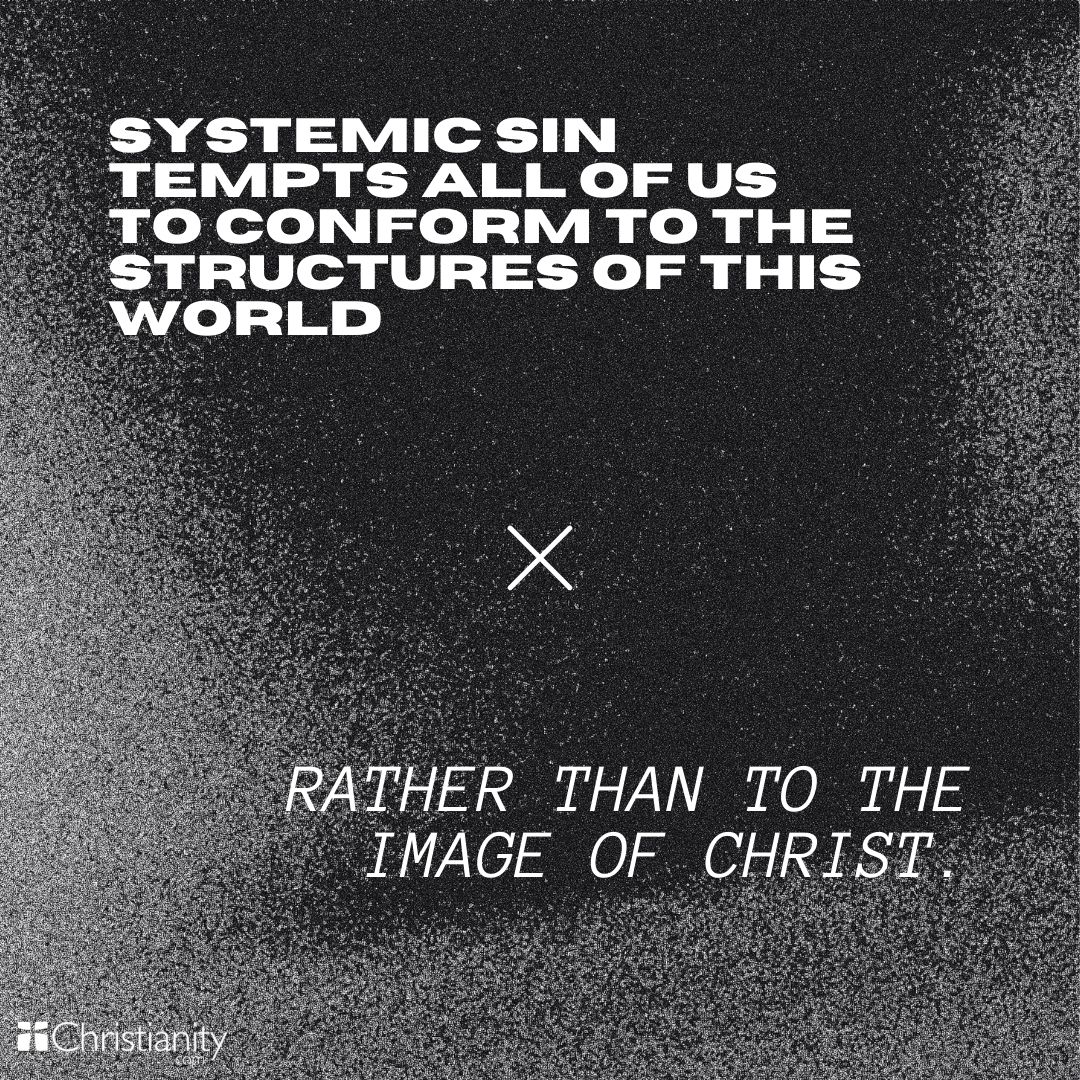
One of the ads that scrolls on the digital billboard for a strip club I pass while driving from my home in Illinois to Saint Louis reads: “Student Loans Got You Down? We’re Always Hiring.” The ad is more than just a tongue-in-cheek way of recruiting new dancers. It is an expression of the systemic sin that structures various misdirected desires into a given society.
Similar to t-shirts featuring the silhouette of a woman swinging on a pole with the phrase “I support single moms,” the ad about student loans acknowledges the financial challenges women in certain situations face. However, that acknowledgement does not prompt compassion or a desire to work toward a common good—it presses toward a transactional relationship. If these women want money, strip clubs and the “gentlemen” who frequent them will be happy to provide it in return for a show. What is offered is not a pathway to human flourishing, but a transactional relationship in which there is no particular concern for the good of the other or for the common good of society as a whole. Satisfying one’s own desires overshadows any concern with glorifying God.
Systemic sin need not be intentional. It has a numbing effect so that driving past a strip club becomes relatively commonplace in contrast to, for example, the horrors of sex trafficking. In both cases, we need to recognize the personal and structural aspects of society that allow for if not encourage evil. As Nancey Murphy suggests, “while structures of sin can come into being through evil choices, they come also through ignorant if well-intentioned choices…they become forces in the universe beyond the control of the individuals involved, often compelling their collusion.” I would only add that “structures of sin” (i.e., systemic sin) can also emerge from ignorance that is not well-intentioned. The uninformed, misdirected and unrestrained desires of humankind result in a world where the disadvantages and vulnerabilities of others can be leveraged for one’s own interest and enjoyment.
Photo Credit: ©Getty Images/Deberarr

Defining Systemic Sin
We might say that systemic sin is the structuring of social relations into society that allows, encourages, normalizes or otherwise authorizes the pursuit of individual or collective self-interest regardless of whether such pursuits reinforce the downsides for others. It does not simply involve immoral acts but misdirected desires that reflect our unwillingness to submit to God—they reflect our rejection of him and our decision to determine our own course. At its core, all sin—whether individual or systemic—is a rejection of God and his order.
Systemic sin claims to be free from the constraints of reality, particularly the reality of God, that are necessary for the fulfillment of humanity’s basic purpose: to glorify God, and to enjoy him forever. It may seem strange to think of freedom from constraints as a negative condition since we normally think of constraints as limiting factors to be avoided. However, Alicia Juarrero, an expert in complexity theory, suggests, “Constraints not only reduce the alternatives—they also create alternatives. Constraints, that is, can also create properties which a component exhibits in virtue of its embeddedness in a system, properties it would otherwise not have.”
To illustrate the nature of constraint, imagine that this whole article was written like the following: Glonfrat mebbled aveaial asavesss jarnip flostering quibberous drent Blaz nurph bo yarfled. By not using common vocabulary (or any real words at all), grammar, and syntax, the “sentence” is gibberish. Free from the constraints of grammatical rules, spelling, and the like, the sentence can’t communicate anything. The constraints of language enable communication by reducing randomness and creating structure and order.
When systemic sin claims to be free from the constraints of God’s authority, life becomes less intelligible—less ordered and less true to reality. The alternative way of living demonstrated by Jesus Christ and reflected in the biblical text becomes foolishness. However, as “the way, the truth, and the life” (Jn 14:6), Christ is the constraint that allows for the emergence of holy “properties” exhibited by those who have been embedded in the body of Christ, the temple of the Holy Spirit.
Swapping the constraints of God’s authority for those associated with limited human determinations does not result in total anarchy. At the same time, adopting the constraints associated with human determinations ends up restricting human flourishing because we believe we can overcome the constraints, apart from God. One of the basic challenges of systemic sin involves the illusion that we can overcome human limitations through human effort and by human means rather than recognizing that the solution to our problems is not self-sufficiency but dependence on the Triune God. As such, when we think about solutions to systemic sin, we must begin by learning to be a people who observe all Christ commanded—a community of disciples.
Photo Credit: Erik Witsoe/Unsplash

The Implications of Systemic Sin
Systemic sin is problematic, in part, because it obstructs our view of reality. It conditions us to a world that is the product of human perception uninformed by God’s revelation. Sociologist Pierre Bourdieu argues that people embrace the world they see so that “the familiar world tends to be ‘taken for granted,’ perceived as natural.” He goes on to suggest that the taken-for-granted-ness of the world is related to “the dispositions of agents, their habitus, that is, the mental structures through which they apprehend the social world, are essentially the product of the internalization of the structures of that world.” Put simply, systemic sin creates an illusion that brackets out God’s authority and leaves us with no choice but to act in accordance with the illusion. Such action tends to reinforce the illusion rather than identifying it as a false or impartial picture of reality. When we believe the map is the terrain, we embrace a representation of the world rather than the world itself.
Systemic sin has practical human implications both for those who benefit from (or appear to) and suffer under certain structural arrangements. If we think of systemic sin as creating situations in which God’s authority is no longer a constraint, we can see that systemic sin doesn’t serve anyone. Those who appear to benefit from structural situations miss out on the sort of effort, disappointment, and failures that can cultivate character. Those who suffer under certain structural arrangements may find the obstacles keeping them from a given opportunity are too great to overcome.
Perhaps most importantly, however, systemic sin skews our actions. Those who benefit from (or appear to) current structures may be tempted to use their position in the structure for their own advantage in a way that does not reflect Christ (Phil 2:5-7). Those who suffer under certain structural arrangements may be tempted to neglect serving God until their circumstances change (1 Cor 7:17-24). Systemic sin tempts all of us to conform to the structures of this world rather than to the image of Christ.

In essence, systemic sin prevents those subject to it from human flourishing because the logic used to navigate a given society or segment thereof (e.g., politics, business, media, etc.) is matched to that society and its goals. As such, the Theo-logic that calls us to obey God—even when doing so doesn’t make sense—is rejected or opted into selectively (also a form of rejection). In rejecting God, we lose any stable basis for loving ourselves and others. To put it differently, without a full and uncompromised loyalty to God all our other loves are disordered. Because systemic sin is rooted in the misdirected desire to be free of God—to avoid an unqualified devotion to him—it distorts our understanding of reality.
Photo Credit: ©GettyImages/Ruben Earth

Addressing Systemic Sin
Systemic sin has, in recent years, been associated with liberation theologies, social justice movements, and critical theory. Each of these areas of study offers unique insights into the symptoms and patterns of systemic sin. For instance, Derrick Bell, widely recognized as the father of critical race theory, highlights the “principle of interest convergence” arguing, “The interest of blacks in achieving racial equality will be accommodated only when it converges with the interests of whites.” Bell is identifying a problem rooted in a society in which the Triune God’s authority is not a governing constraint. That problem may be stated as follows: rejecting God’s authority creates a vacuum in which some other authority is established.
Again, the problem is not authority per se, but the inherent limitations of any governing authority. To put it differently, if those at the top were to find themselves on the bottom and vice versa, society would exhibit different problems rather than having no problems at all. That is not to suggest that systemic sin should not be addressed, but to recognize that apart from discipleship the appropriate constraints for addressing systemic sin are lacking.
Does the lack of constraints mean that Christians can only address systemic sin through discipleship? In a way, yes. Discipleship is the only way the constraints of God’s authority may be applied within the world. Those constraints are the only way to transcend the limitations of this world—to, as Juarrero suggests, “create alternatives.” Discipleship does not lead us away from participating in economic, political, or social. Instead, it leads us to participate differently, knowing that whatever progress might be made will be fleeting and insufficient unless or until Christ’s authority is recognized. Fleeting and insufficient progress is not trivial because it is fleeting and insufficient. Such progress is still worth pursuing, but, for Christians, it cannot be an end in itself. It must be something we pursue as we seek to make disciples for Jesus Christ.
Systemic sin, according to theologian Cornelius Plantinga, “comprises a vast historical and cultural matrix that includes traditions, old patterns of relationship and behavior, atmospheres of expectation, [and] social habits.” Our world is corrupted and corruptible, in part, because we diminish God’s authority, giving lesser authorities pride of place. Our traditions, relationships, expectations, habits, etc., no longer sit under the authority of God. As such, combatting systemic sin may involve social justice movements, political participation, or initiatives to root out partiality, but it must involve discipleship because making disciples draws people under and teaches them to live under the authority of Christ.
Photo Credit: ©Unsplash/Timon Studler

Originally published Friday, 28 February 2025.
